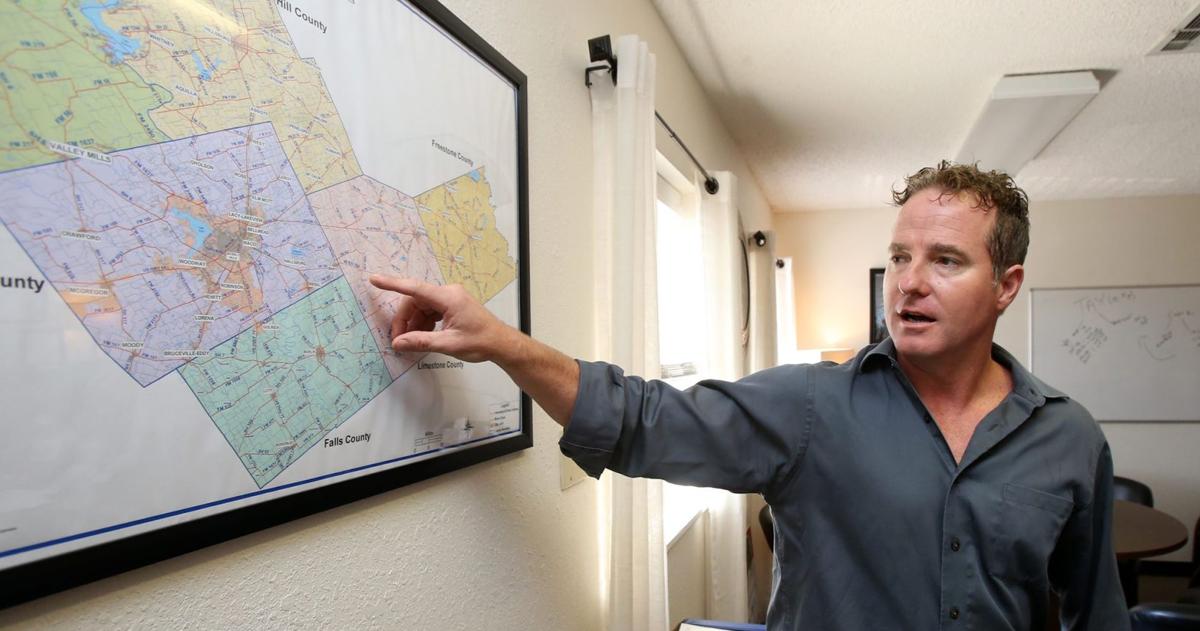A new Heart of Texas Behavioral Health Network team will build on existing efforts to turn possible tragedies for area youth into lifelines to immediate help and referrals to additional treatment.
A $1.75 million grant will fund a Youth Crisis Outreach Team of five people responding almost exclusively to mental health crises involving people age 3 to 18. Teens threatening themselves or others, maybe their parents, could receive on-site counseling from a mental health professional.
“We have long wanted additional staff specifically and specially dedicated to providing crisis stabilization services,” said Ron Kimbell, who directs the network’s Klaras Center for Families.
He was in a celebratory mood Friday, discussing the Texas Health and Human Services grant to spend over two years.
The money will go to hiring a team and crafting protocol and structure. The goal is 24/7 availability to deal with mental health crises young people may face in a six-county region that includes McLennan County.
People are also reading…
“We’re looking at hiring five full-timers and will have a whole bunch of on-call personnel,” Kimbell said. “It’s worth emphasizing that children and youth have specific needs that are a bit different than adults, and that drives the need for a specialized response. We will use the program to try to avert psychiatric hospitalizations and presentations to emergency rooms.
“They will still occur. There will always be crisis episodes demanding a higher level of care, but the hope is that, with the Youth Crisis Outreach Team, we will be able to prevent many of those situations.”
A mental health crisis is defined as significant psychiatric decompensation, or posing an imminent threat to one’s self or someone else.
“Not all of the crisis experiences faced by children and families meet that definition, but they still need support and they need intervention,” Kimbell said. “Still, they need help, support and intervention. These episodes often occur after business hours. The hope here is that a trained staff will come out, help the child and the family de-escalate the situation to avoid hospitalization, emergency room visits or a call to law enforcement.”
He said the goal is to “mitigate the chance of any harm,” and to link children and families to mental health support available communitywide.
“We are not saying, ‘Don’t call 911,'” Kimbell said. “Too often, children, teenagers, the family have to call law enforcement, 911, or go to the emergency room when a child is experiencing a mental health crisis. We won’t completely eliminate that. But a crisis outreach team means a staff offering more specialized services can intervene, assess and stabilize situations, hopefully in the home, avoiding costly and often traumatic interactions with law enforcement and the emergency room.”
Tom Christian, director of grants and special projects for the Heart of Texas Behavioral Health Network, made clear the network already has a Mobile Crisis Outreach Team that can respond to situations involving minors.
But its Youth Crisis Outreach Team receiving $1.8 million in financial support will exclusively target young people and have greater resources. Its team will have qualified mental health professionals, including a licensed therapist and access to child and adolescent psychiatrists, Christian said.
“We’re in the process of developing the program and hiring the staff,” Kimbell said Friday. “This morning we spent some time in exciting meetings and discussions, and began putting together program design.”
He said talks continue on merging the new response team with the existing version, and possibly working in tandem with the new Diversion Center the Heart of Texas Behavioral Health Network opened in October on Imperial Drive.
Asked about future funding, Kimbell, “It is hoped state funding will continue into the future, whether via this channel or other grants, so we can sustain this exciting new program.”
Waco police Cmdr. Jared Wallace said he was pleased to hear about the grant.
“We are thankful for our partnership with HOTBHN and appreciate their efforts to add more after-hours response options for behavioral health crisis calls in the community,” Wallace said in a statement. “… Adding this team should reduce the number of police responses to crisis behavioral health calls for service and provide another harm-focused option for officers whenever we encounter youths in our community who are in a behavioral health crisis.”
He said the public long has considered its options limited to “traditional police or emergency room responses.” He said the decision last year to place licensed mental health professionals in the department’s dispatch center represents another major shift in after-hours response services. That program also is in partnership with the Heart of Texas Behavioral Health Network.
WATCH NOW: The Waco Police Department has partnered with the Heart of Texas Behavioral Health Network to create the Heart of Texas Crisis Call Diversion Program, a dispatch team meant to respond to mental health calls.




